Hansen's Sunday Notebook: It's crisis time after rebuilding Ducks beat Wildcats — twice
- Updated
Star sports columnist Greg Hansen offers his opinion on recent sports news.
- Greg Hansen Arizona Daily Star
- Updated
Sometimes it’s not who you hire, it’s who you don’t hire.
Five years ago, Rich Rodriguez told Arizona defensive line coach Joe Salave’a he would not be retained on RichRod’s first UA staff, 2012.
How’d that turn out?
RichRod hired 65-year-old West Virginia defensive line coach Bill Kirelawich. Salave’a, Arizona’s 1997 All-Pac-10 defensive tackle, began looking for work, ultimately becoming part of Mike Leach’s first staff at Washington State.
Last week, despite being offered a raise and promotion at WSU, Salave’a accepted a $1.65 million, three-year contract to be Oregon’s assistant head coach and defensive line coach. That’s a better contract than any assistant football coach in UA history.
Simultaneously, the Ducks flipped Arizona’s most high-profile recruit, quarterback Braxton Burmeister, and are now working on persuading Eugene (Ore.) Sheldon High offensive lineman Cody Shear to renege on his commitment to play at Arizona and become a Duck. Shear’s ties to the UO are strong; his uncle, Tim Shear, is a former Oregon linebacker who owns an e-commerce business in Eugene.
Kirelawich? He was fired a year ago. His position went not to Salave’a, but to former ASU lineman Vince Amey, who had never coached a down of college football.
Salave’a has become one of college football’s most significant recruiters; his connection to the Polynesian community is such that the Cougars’ rise to Pac-12 contention can be linked to those Salave’a recruited, including Hercules Mata’afa, Daniel Ekuale Logan Tago, Darryl Paulo, Shalom Luani and Destiny Vaeao.
Seven players have now withdrawn their pledges to play football at Arizona, including defensive lineman Austin Faoliu of Anaheim, California, who will play in Friday’s Polynesian Bowl in Honolulu. After Faoliu committed to Arizona, Salave’a offered him a scholarship to WSU; Faoliu will announce his final college choice Friday.
Last week began with promise for RichRod. He was advanced to the presidency of the American Football Coaches Association, where he and his colleagues began to campaign for, among other things, a mid-December signing period.
Such a change might end many late-term recruiting flips.
But if you believe in football karma, here’s a bad trend: Presidents of the AFCA have not fared well recently.
Washington’s Tyrone Willingham, president of the AFCA in 2008, went 0-12 and was fired.
Dick Tomey, president of the AFCA in 2009, went 2-10 at San Jose State and resigned.
Texas’ Mack Brown, president of the AFCA in 2013, went 8-5 and was fired.
Cincinnati’s Tommy Tuberville, president of the AFCA in 2015, went 4-8 last season and resigned.
Whether it’s bad karma or bad luck, whatever momentum Arizona gained from beating Arizona State in November’s Territorial Cup has been lost. This is developing into a crisis to match John Mackovic’s final season at Arizona, 2003.
- Greg Hansen Arizona Daily Star
- Updated
In its 13th year, Monday’s Martin Luther King Basketball Classic at McKale Center has become the showcase for high school basketball in Southern Arizona.
Seven games will be played beginning at 11 a.m., when the girls teams from Tohono O’odham and Baboquivari meet. The final game, scheduled to start at 8 p.m., matches boys teams from Cienega and Tucson High.
The feature game is a 6:30 p.m., clash between Sahuaro and Salpointe Catholic. After almost a decade, the long-powerful Cougars teams of Dick McConnell and the Lancers contenders of Brian Peabody have been re-branded and are again traditional powers.
Cougars coach Jim Henry, a Sahuaro alumnus, is 122-58 in his seventh season. Salpointe coach Brian Holstrom is 149-61 in his eighth season.
Keep an eye on Salpointe junior Rylan O’Brien. In Thursday’s victory over Nogales, O’Brien made 11 3-point baskets and scored 35 points. The AIA lists just one player in state history, Pueblo’s Smiley Contreras in 2001 (with 14), having made more threes in a game.
This is also the busiest period of the prep basketball season; Sahuaro plays six games in nine days and the Lancers five games in eight days. Admission is $10 and is part of the Coaches For Charity nonprofit organization.
- Greg Hansen Arizona Daily Star
- Updated
Progress: Although first-year UA women’s basketball coach Adia Barnes didn’t have time to properly recruit for the 2016-17 season, she engineered one of the most impressive victories in the school’s last five years. The Wildcats beat 12-2 Utah in Salt Lake City last Sunday. How unexpected was that? Under former coach Niya Butts, the Wildcats had gone 1-32 in Pac-12 road games dating to 2013.
- Greg Hansen Arizona Daily Star
- Updated
When vandals ruined Pueblo High School’s new basketball surface recently, it forced coach Izzy Galindo’s 18-1 and No. 5-ranked (Class 4A) girls basketball team to play a home game on the road, at Amphitheater. The Warriors won 55-25. The school fixed some lighting and updated locker rooms at the smaller south gymnasium in time for Pueblo to play Friday’s game, which it won 80-38 over Rio Rico. The Warriors have three regular-season home games remaining; all will be played in the smaller facility.
- Greg Hansen Arizona Daily Star
- Updated
Sabino football coach Jay Campos, who led the Sabercats to four state championship games, resigned last week. He won 133 games, an average of nine per season, which ranks with any prep football coach in Tucson history. Campos, who will be a full-time administrator at Sabino, said he wouldn’t rule out the possibility of returning to coaching some day. It wouldn’t be much of a surprise if ex-Sabercat Ryan McBrayer, part of Campos’ staff and a former Sabercats standout linebacker, becomes the new head coach. McBrayer is a teacher at Sabino.
- Greg Hansen Arizona Daily Star
- Updated
The race for men’s basketball Player of the Year in the ACCAC appears to be a two-way race between a couple of Tucsonans. Pima sophomore Deion James, 6-foot-6-inch wing player from Empire High School, leads the league in scoring with 21.9 points per game, and is averaging 10.1 rebounds per game. James last week was offered scholarships by both Colorado State and Fresno State. South Mountain freshman Jacob Inclan, a Sunnyside High School grad, is also averaging a double-double, leading the ACCAC with a 12.3 rebounds-per-game average. He is second in points, at 20.1 per game.
- Greg Hansen Arizona Daily Star
- Updated
Tucson athlete of the week: UA freshman high jumper Justice Summerset made an impressive college debut Friday night. In an indoor track meet at NAU, Summerset cleared 7 feet 3 inches, which is his personal best. His jump would’ve been good for sixth place in last year’s NCAA indoor high jump finals. Summerset is a Mountain View High School grad.
- Greg Hansen Arizona Daily Star
- Updated
Arizona announced last week it a two-game football series against Colorado State in 2027 and 2028. It seems odd a Pac-12 school would announce a series with a mid-level school like CSU, and especially a series a decade away. Arizona used to boldly announce football series against Ohio State, LSU, Miami, Oklahoma and Wisconsin. Now? NAU, UTEP and Houston are Arizona’s 2017 nonconference opponents. Tucson fans haven’t reacted well to a regular and diminished list of opponents.
- Greg Hansen Arizona Daily Star
- Updated
Cal’s hiring of Wisconsin defensive coordinator Justin Wilcox as its new football coach represents a notable change, from offense to defense, among a league once laden with offensive-system coaches. Now seven of the Pac-12’s head coaches are defensive-oriented men: Wilcox; Utah’s Kyle Whittingham; Colorado’s Mike MacIntyre; ASU’s Todd Graham; UCLA’s Jim Mora; Oregon’s Willie Taggart; and Oregon State’s Gary Andersen all came up through the ranks as defensive coaches. It’s like the 1990s all over again.
- Greg Hansen Arizona Daily Star
- Updated
I wasn’t surprised Sonny Dykes wasn’t a good fit and, ultimately, fired as Cal’s football coach. Dykes is a Texan and he couldn’t resist the opportunity to interview for the Baylor job last month. The AD who hired Dykes is no longer on staff, and, much like RichRod, Dykes made some coaching staff mistakes. If you coach at Cal, your lifestyle changes because you spend so much time driving traffic-clogged freeways. Getting to the Cal campus from anywhere is a challenge. The freeway lifestyle is among the reasons former Arizona associate AD Bob Bockrath left as Cal’s athletic director to take a similar job at Texas Tech a few years ago.
- Greg Hansen Arizona Daily Star
- Updated
If you’re 55 or older, and if you play in one golf tournament this year, I recommend the third annual Edward Jones Southern Arizona Short Course Open Feb. 9-10. It will be held at Rolling Hills Golf Course. Gross/net prizes will be awarded for age groups 55-64, 65-74 and 75-over, for both men and women. Fee is $99. Entry forms available at rollinghillsgolftucson.com.
- Greg Hansen Arizona Daily Star
- Updated
When he was a teenage tennis standout, one of Eric Styrmoe’s Tucson rivals was a young Robert Sarver, now owner of the Phoenix Suns. Styrmoe stuck with tennis; he played at Sabino High School and Pima College and then became probably the top tennis player in Weber State history. He was selected to the WSU Sports Hall of Fame last week and will be induced March 3-4 in Ogden, Utah. At Weber State, Styrmoe won two Big Sky Conference singles titles (and two team championships), later won 10 USTA singles/doubles titles and registered 11 Tucson City singles championships between 1981-95. He is now director of tennis at the Westin La Paloma.
- Greg Hansen Arizona Daily Star
- Updated
Tucsonan Bryanna Caldwell Coté was selected to the U.S. Bowling Congress’ Team USA for 2017 after finishing third in the qualifying finals in Las Vegas last week. Cote, a Canyon del Oro High School grad, thus qualifies for the World Cup this year in Mexico, as well as other Team USA competitions.
- Greg Hansen Arizona Daily Star
- Updated
Small world: In the semifinals of the Mexican Winter League baseball playoffs last week, Tucson pitchers Pat McCoy of Sahuaro and Manny Barreda of Sahuarita opposed one another in Los Mochis. Barreda’s Los Mochis team prevailed over McCoy’s Culiacan club, 4-1. Barreda, who pitched a no-hitter in November, allowed two hits in eight innings. The two were high school rivals, meeting in a 2005 Sahuarita Invitational game in which McCoy beat Barreda 6-3. They also pitched against one another in a Double-A game back in 2013. McCoy has since pitched in 14 big-league games, for Detroit, while Barreda, now 28, has not moved past Double-A.
- Greg Hansen Arizona Daily Star
- Updated
The power of ESPN versus Fox Sports 1: The Jan. 4 Arizona-Utah basketball game, a Thursday night FS1 telecast, drew an audience of 205,000. The same night, Gonzaga and USF drew 280,000 on ESPN2, and the UCLA-Cal game on ESPN had an audience of 730,000. Saturday’s Arizona-UCLA game at Pauley Pavilion on CBS could surpass 1 million viewers.
- Greg Hansen Arizona Daily Star
- Updated
What goes around comes around: In the winter of 1982, UA football coach Larry Smith permitted me to accompany him and defensive coordinator Moe Ankney on a recruiting visit to five Phoenix prospects.
It was the day the Wildcats visited with and got a commitment from South Mountain High School linebacker Byron Evans, who became the 1986 Pac-10 defensive Player of the Year.
But the day began ominously.
Smith pulled into the parking lot at Tempe McClintock High School to meet with the state’s No. 1 recruit, linebacker Frank Rudolph. Something went wrong right away.
The McClintock coach was standing in the parking lot, waiting for Smith.
“Frank’s not going to attend Arizona,” the coach said. “He’s going to go to ASU.”
That was it. After a brief, awkward conversation, the McClintock coach returned to the gym. Smith didn’t even get out of the car.
Last Wednesday, Larry’s son, Corby Smith, who grew up on the sidelines shadowing his father at Arizona Stadium, became the head football coach at McClintock High School.
If that’s not football justice, what is?
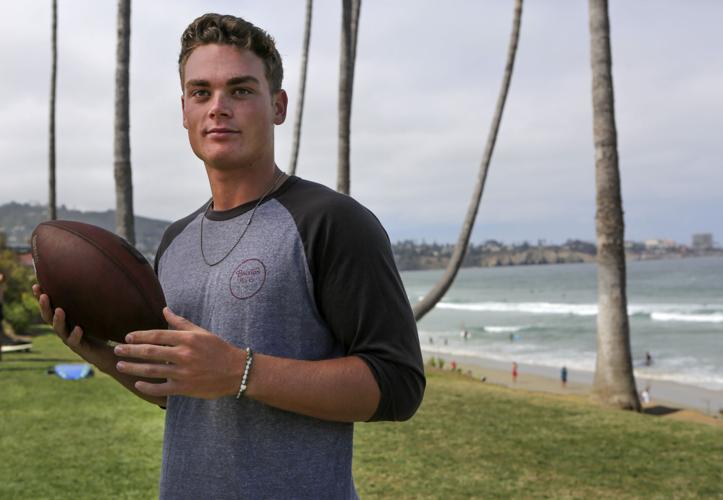
Sometimes it’s not who you hire, it’s who you don’t hire.
Five years ago, Rich Rodriguez told Arizona defensive line coach Joe Salave’a he would not be retained on RichRod’s first UA staff, 2012.
How’d that turn out?
RichRod hired 65-year-old West Virginia defensive line coach Bill Kirelawich. Salave’a, Arizona’s 1997 All-Pac-10 defensive tackle, began looking for work, ultimately becoming part of Mike Leach’s first staff at Washington State.
Last week, despite being offered a raise and promotion at WSU, Salave’a accepted a $1.65 million, three-year contract to be Oregon’s assistant head coach and defensive line coach. That’s a better contract than any assistant football coach in UA history.
Simultaneously, the Ducks flipped Arizona’s most high-profile recruit, quarterback Braxton Burmeister, and are now working on persuading Eugene (Ore.) Sheldon High offensive lineman Cody Shear to renege on his commitment to play at Arizona and become a Duck. Shear’s ties to the UO are strong; his uncle, Tim Shear, is a former Oregon linebacker who owns an e-commerce business in Eugene.
Kirelawich? He was fired a year ago. His position went not to Salave’a, but to former ASU lineman Vince Amey, who had never coached a down of college football.
Salave’a has become one of college football’s most significant recruiters; his connection to the Polynesian community is such that the Cougars’ rise to Pac-12 contention can be linked to those Salave’a recruited, including Hercules Mata’afa, Daniel Ekuale Logan Tago, Darryl Paulo, Shalom Luani and Destiny Vaeao.
Seven players have now withdrawn their pledges to play football at Arizona, including defensive lineman Austin Faoliu of Anaheim, California, who will play in Friday’s Polynesian Bowl in Honolulu. After Faoliu committed to Arizona, Salave’a offered him a scholarship to WSU; Faoliu will announce his final college choice Friday.
Last week began with promise for RichRod. He was advanced to the presidency of the American Football Coaches Association, where he and his colleagues began to campaign for, among other things, a mid-December signing period.
Such a change might end many late-term recruiting flips.
But if you believe in football karma, here’s a bad trend: Presidents of the AFCA have not fared well recently.
Washington’s Tyrone Willingham, president of the AFCA in 2008, went 0-12 and was fired.
Dick Tomey, president of the AFCA in 2009, went 2-10 at San Jose State and resigned.
Texas’ Mack Brown, president of the AFCA in 2013, went 8-5 and was fired.
Cincinnati’s Tommy Tuberville, president of the AFCA in 2015, went 4-8 last season and resigned.
Whether it’s bad karma or bad luck, whatever momentum Arizona gained from beating Arizona State in November’s Territorial Cup has been lost. This is developing into a crisis to match John Mackovic’s final season at Arizona, 2003.
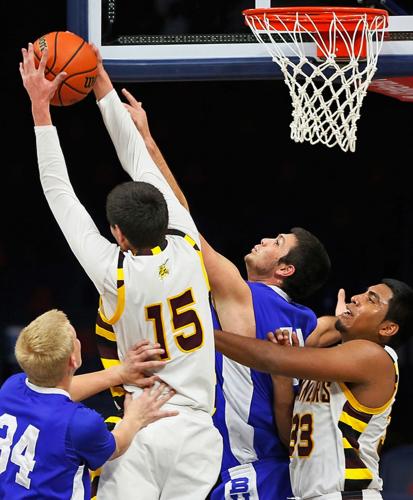
In its 13th year, Monday’s Martin Luther King Basketball Classic at McKale Center has become the showcase for high school basketball in Southern Arizona.
Seven games will be played beginning at 11 a.m., when the girls teams from Tohono O’odham and Baboquivari meet. The final game, scheduled to start at 8 p.m., matches boys teams from Cienega and Tucson High.
The feature game is a 6:30 p.m., clash between Sahuaro and Salpointe Catholic. After almost a decade, the long-powerful Cougars teams of Dick McConnell and the Lancers contenders of Brian Peabody have been re-branded and are again traditional powers.
Cougars coach Jim Henry, a Sahuaro alumnus, is 122-58 in his seventh season. Salpointe coach Brian Holstrom is 149-61 in his eighth season.
Keep an eye on Salpointe junior Rylan O’Brien. In Thursday’s victory over Nogales, O’Brien made 11 3-point baskets and scored 35 points. The AIA lists just one player in state history, Pueblo’s Smiley Contreras in 2001 (with 14), having made more threes in a game.
This is also the busiest period of the prep basketball season; Sahuaro plays six games in nine days and the Lancers five games in eight days. Admission is $10 and is part of the Coaches For Charity nonprofit organization.
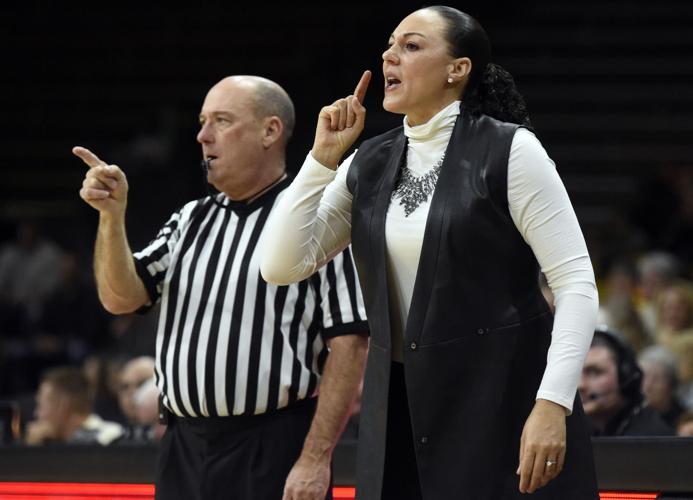
Progress: Although first-year UA women’s basketball coach Adia Barnes didn’t have time to properly recruit for the 2016-17 season, she engineered one of the most impressive victories in the school’s last five years. The Wildcats beat 12-2 Utah in Salt Lake City last Sunday. How unexpected was that? Under former coach Niya Butts, the Wildcats had gone 1-32 in Pac-12 road games dating to 2013.
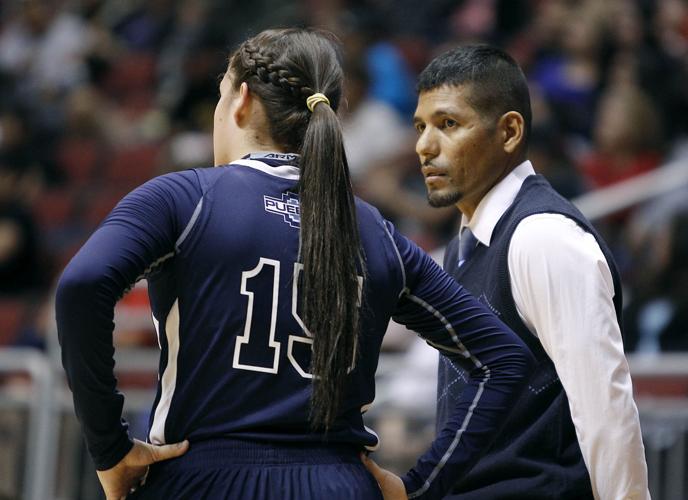
When vandals ruined Pueblo High School’s new basketball surface recently, it forced coach Izzy Galindo’s 18-1 and No. 5-ranked (Class 4A) girls basketball team to play a home game on the road, at Amphitheater. The Warriors won 55-25. The school fixed some lighting and updated locker rooms at the smaller south gymnasium in time for Pueblo to play Friday’s game, which it won 80-38 over Rio Rico. The Warriors have three regular-season home games remaining; all will be played in the smaller facility.
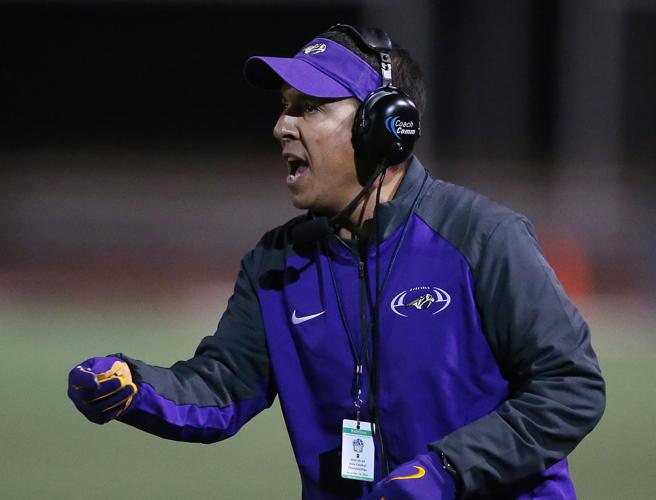
Sabino football coach Jay Campos, who led the Sabercats to four state championship games, resigned last week. He won 133 games, an average of nine per season, which ranks with any prep football coach in Tucson history. Campos, who will be a full-time administrator at Sabino, said he wouldn’t rule out the possibility of returning to coaching some day. It wouldn’t be much of a surprise if ex-Sabercat Ryan McBrayer, part of Campos’ staff and a former Sabercats standout linebacker, becomes the new head coach. McBrayer is a teacher at Sabino.
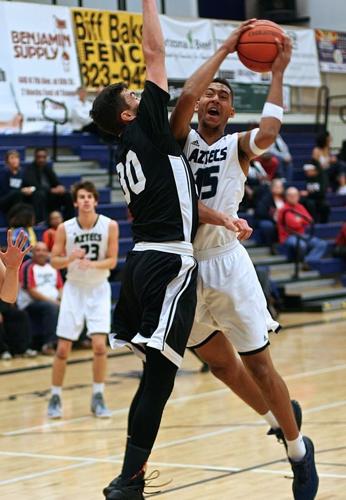
The race for men’s basketball Player of the Year in the ACCAC appears to be a two-way race between a couple of Tucsonans. Pima sophomore Deion James, 6-foot-6-inch wing player from Empire High School, leads the league in scoring with 21.9 points per game, and is averaging 10.1 rebounds per game. James last week was offered scholarships by both Colorado State and Fresno State. South Mountain freshman Jacob Inclan, a Sunnyside High School grad, is also averaging a double-double, leading the ACCAC with a 12.3 rebounds-per-game average. He is second in points, at 20.1 per game.
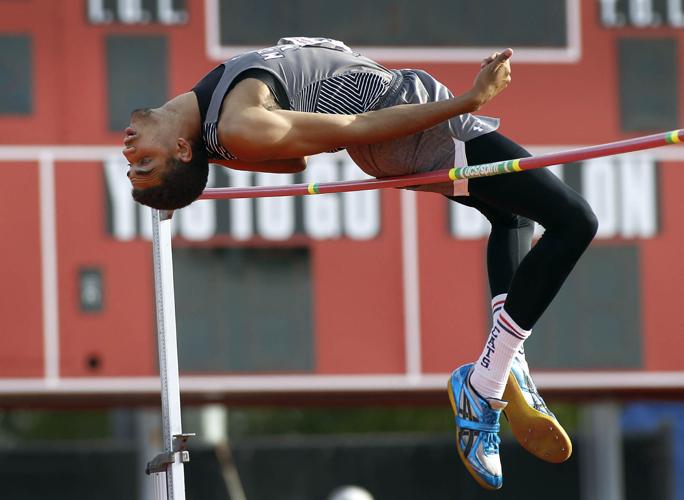
Tucson athlete of the week: UA freshman high jumper Justice Summerset made an impressive college debut Friday night. In an indoor track meet at NAU, Summerset cleared 7 feet 3 inches, which is his personal best. His jump would’ve been good for sixth place in last year’s NCAA indoor high jump finals. Summerset is a Mountain View High School grad.
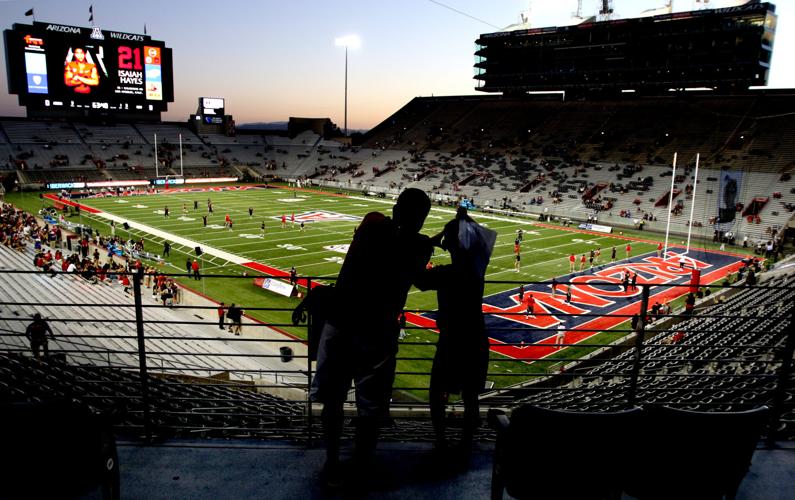
Arizona announced last week it a two-game football series against Colorado State in 2027 and 2028. It seems odd a Pac-12 school would announce a series with a mid-level school like CSU, and especially a series a decade away. Arizona used to boldly announce football series against Ohio State, LSU, Miami, Oklahoma and Wisconsin. Now? NAU, UTEP and Houston are Arizona’s 2017 nonconference opponents. Tucson fans haven’t reacted well to a regular and diminished list of opponents.
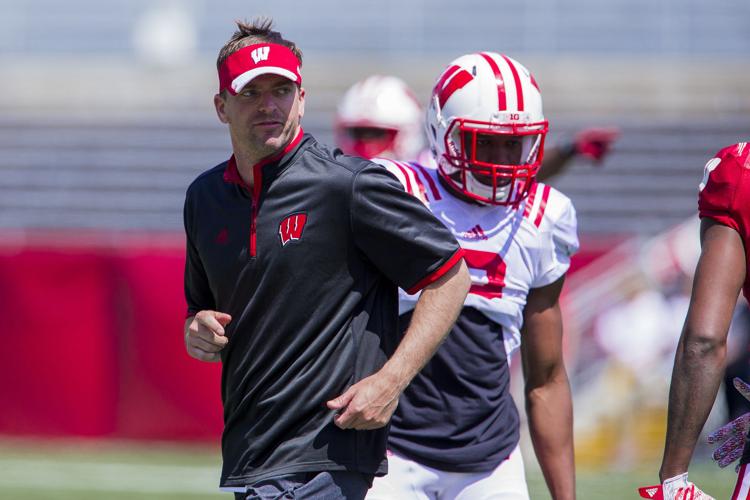
Cal’s hiring of Wisconsin defensive coordinator Justin Wilcox as its new football coach represents a notable change, from offense to defense, among a league once laden with offensive-system coaches. Now seven of the Pac-12’s head coaches are defensive-oriented men: Wilcox; Utah’s Kyle Whittingham; Colorado’s Mike MacIntyre; ASU’s Todd Graham; UCLA’s Jim Mora; Oregon’s Willie Taggart; and Oregon State’s Gary Andersen all came up through the ranks as defensive coaches. It’s like the 1990s all over again.
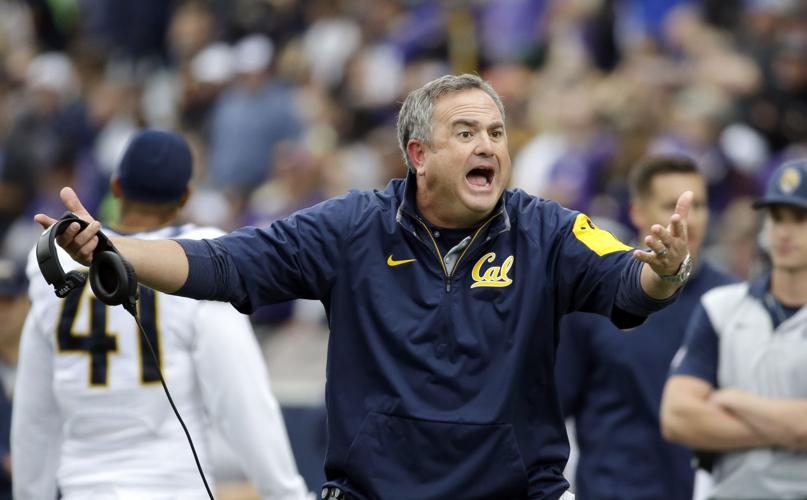
I wasn’t surprised Sonny Dykes wasn’t a good fit and, ultimately, fired as Cal’s football coach. Dykes is a Texan and he couldn’t resist the opportunity to interview for the Baylor job last month. The AD who hired Dykes is no longer on staff, and, much like RichRod, Dykes made some coaching staff mistakes. If you coach at Cal, your lifestyle changes because you spend so much time driving traffic-clogged freeways. Getting to the Cal campus from anywhere is a challenge. The freeway lifestyle is among the reasons former Arizona associate AD Bob Bockrath left as Cal’s athletic director to take a similar job at Texas Tech a few years ago.

If you’re 55 or older, and if you play in one golf tournament this year, I recommend the third annual Edward Jones Southern Arizona Short Course Open Feb. 9-10. It will be held at Rolling Hills Golf Course. Gross/net prizes will be awarded for age groups 55-64, 65-74 and 75-over, for both men and women. Fee is $99. Entry forms available at rollinghillsgolftucson.com.

When he was a teenage tennis standout, one of Eric Styrmoe’s Tucson rivals was a young Robert Sarver, now owner of the Phoenix Suns. Styrmoe stuck with tennis; he played at Sabino High School and Pima College and then became probably the top tennis player in Weber State history. He was selected to the WSU Sports Hall of Fame last week and will be induced March 3-4 in Ogden, Utah. At Weber State, Styrmoe won two Big Sky Conference singles titles (and two team championships), later won 10 USTA singles/doubles titles and registered 11 Tucson City singles championships between 1981-95. He is now director of tennis at the Westin La Paloma.

Tucsonan Bryanna Caldwell Coté was selected to the U.S. Bowling Congress’ Team USA for 2017 after finishing third in the qualifying finals in Las Vegas last week. Cote, a Canyon del Oro High School grad, thus qualifies for the World Cup this year in Mexico, as well as other Team USA competitions.

Small world: In the semifinals of the Mexican Winter League baseball playoffs last week, Tucson pitchers Pat McCoy of Sahuaro and Manny Barreda of Sahuarita opposed one another in Los Mochis. Barreda’s Los Mochis team prevailed over McCoy’s Culiacan club, 4-1. Barreda, who pitched a no-hitter in November, allowed two hits in eight innings. The two were high school rivals, meeting in a 2005 Sahuarita Invitational game in which McCoy beat Barreda 6-3. They also pitched against one another in a Double-A game back in 2013. McCoy has since pitched in 14 big-league games, for Detroit, while Barreda, now 28, has not moved past Double-A.
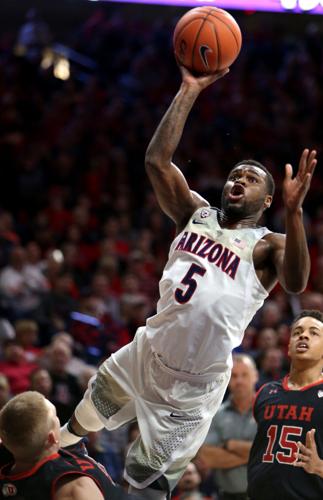
The power of ESPN versus Fox Sports 1: The Jan. 4 Arizona-Utah basketball game, a Thursday night FS1 telecast, drew an audience of 205,000. The same night, Gonzaga and USF drew 280,000 on ESPN2, and the UCLA-Cal game on ESPN had an audience of 730,000. Saturday’s Arizona-UCLA game at Pauley Pavilion on CBS could surpass 1 million viewers.
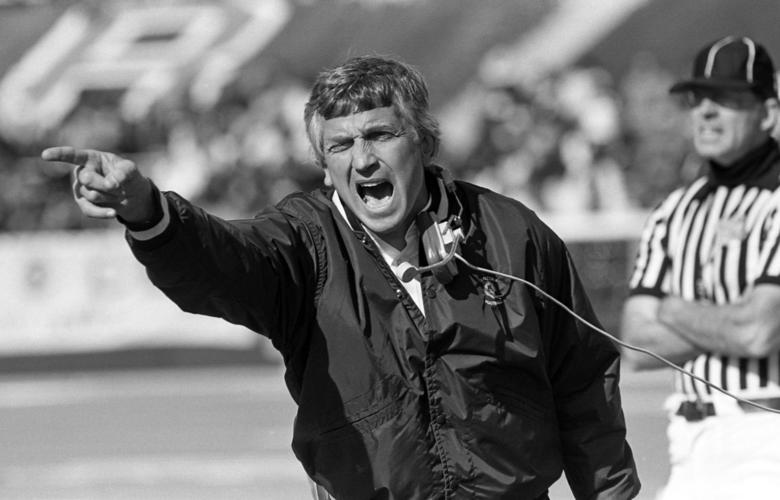
What goes around comes around: In the winter of 1982, UA football coach Larry Smith permitted me to accompany him and defensive coordinator Moe Ankney on a recruiting visit to five Phoenix prospects.
It was the day the Wildcats visited with and got a commitment from South Mountain High School linebacker Byron Evans, who became the 1986 Pac-10 defensive Player of the Year.
But the day began ominously.
Smith pulled into the parking lot at Tempe McClintock High School to meet with the state’s No. 1 recruit, linebacker Frank Rudolph. Something went wrong right away.
The McClintock coach was standing in the parking lot, waiting for Smith.
“Frank’s not going to attend Arizona,” the coach said. “He’s going to go to ASU.”
That was it. After a brief, awkward conversation, the McClintock coach returned to the gym. Smith didn’t even get out of the car.
Last Wednesday, Larry’s son, Corby Smith, who grew up on the sidelines shadowing his father at Arizona Stadium, became the head football coach at McClintock High School.
If that’s not football justice, what is?
View this profile on Instagram#ThisIsTucson 🌵 (@this_is_tucson) • Instagram photos and videos
Most viewed stories
-
Tucson is now home to the largest outdoor mural in the state 🎨
-
Everything you need to know about this year's All Souls Procession
-
34 FREE events happening in Tucson this November 2024 💸
-
100 fun events happening this November 2024 🦖🎨
-
100 fun events happening in Tucson this weekend Oct. 24-27 🎃👻
-
Reid Park Zoo is officially home to a new elephant 🐘
-
73 festivals and markets in Tucson this fall and winter 2024
-
45 fun Halloween events in Tucson for KIDS 🎃
-
56 fun Halloween events in Tucson for ADULTS 👻
-
Aspasia has incredible Middle Eastern food — and it's time to give them their flowers



